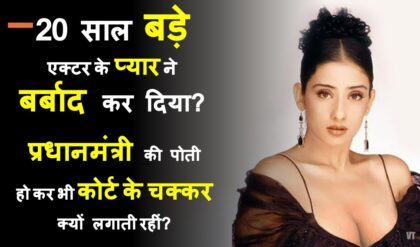Jaya Prada, a name synonymous with grace and beauty, is one of the most iconic figures in Indian cinema, especially noted for her contributions during the late 1970s and 1980s. Born on April 3, 1962, in Rajahmundry, Andhra Pradesh, Jaya Prada’s journey from a small-town girl to a celebrated actress is a tale of talent, determination, and resilience. Her life story encapsulates not only her rise to fame but also the challenges she faced in a male-dominated industry and her subsequent transition into politics.
From a young age, Jaya Prada exhibited a passion for the performing arts. She began her career in the film industry as a dancer and was trained in classical dance forms, particularly Bharatanatyam. Her talent caught the attention of filmmakers, and she made her acting debut in 1976 with the Telugu film “Bhoomi Kosam.” However, it was her role in the film “K. Balachander’s “Sankarabharanam” (1980) that marked her entry into the limelight. The film was a massive hit, and Jaya’s performance garnered critical acclaim, establishing her as a talented actress to watch.
In the early 1980s, Jaya Prada became a household name, especially in the Southern film industry. Her collaboration with legendary actors like N.T. Rama Rao and Rajinikanth in various Telugu films further solidified her position as a leading actress. Jaya’s beauty, combined with her acting prowess, made her one of the most sought-after actresses in Indian cinema. During this period, she starred in a series of successful films, including “Devatha,” “Kshana Kshanam,” and “Sambhavi,” which showcased her versatility as an actress.
Her Hindi film debut came in 1981 with “Sharaabi,” where she starred opposite Amitabh Bachchan. The film was a success, and Jaya’s performance was praised by both critics and audiences. This marked the beginning of her successful career in Bollywood. She went on to work with some of the biggest stars of the time, including Rajesh Khanna, Dharmendra, and Anil Kapoor. Her roles in films like “Kshatriya,” “Maqsad,” and “Shaan” further showcased her range as an actress and solidified her status as a leading lady in Bollywood.
Despite her success, Jaya Prada faced numerous challenges in the film industry. The 1980s were a transformative period in Indian cinema, with changing narratives and the emergence of new talent. Jaya often found herself in competition with younger actresses, including Sridevi, who became a formidable force in the industry. The competition pushed Jaya to constantly evolve her craft and seek out diverse roles that showcased her talent. However, it was her charm, elegance, and strong screen presence that allowed her to remain relevant in an ever-changing industry.
One of the most significant aspects of Jaya Prada’s career was her ability to break stereotypes associated with female roles in Indian cinema. She often portrayed strong, independent women who challenged societal norms. Her performances were not just limited to glamour; she took on roles that depicted women in various shades, reflecting the complexities of their lives. This ability to portray nuanced characters earned her a loyal fan base and critical acclaim, setting a precedent for future generations of actresses.
In addition to her successful film career, Jaya Prada ventured into politics, a move that surprised many of her fans. In the early 1990s, she joined the Samajwadi Party and was elected to the Lok Sabha, representing the Rampur constituency in Uttar Pradesh. Her entry into politics was driven by a desire to serve the public and contribute to social change. Jaya’s charisma and popularity as a film star helped her gain a significant following in the political arena, and she quickly became a prominent leader within the party.
Despite her accomplishments in politics, Jaya Prada faced challenges in balancing her film career and political responsibilities. Her political journey was not without its controversies, and she often found herself at the center of heated discussions. Critics questioned her commitment to politics, given her established film career. However, Jaya remained steadfast in her resolve, emphasizing her passion for public service and her desire to make a difference in society.
Jaya Prada’s life story is also marked by personal challenges. Her first marriage to film producer and director Krishna Saran was tumultuous, ultimately leading to divorce. This period was difficult for her, but she emerged stronger, focusing on her career and political ambitions. Her determination to succeed in both arenas is a testament to her resilience and strength of character.
In the late 1990s, Jaya Prada gradually shifted her focus away from acting to concentrate on her political career. She became an influential voice in her constituency, advocating for the rights of women and marginalized communities. Her dedication to social causes and her ability to connect with people earned her respect and admiration from her constituents. Despite facing political rivalries and challenges, Jaya maintained her integrity and
Watch video:





